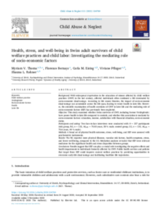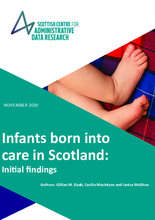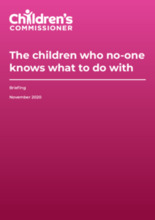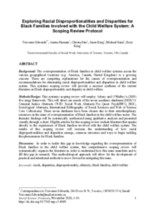Displaying 271 - 280 of 2221
This article studies how three groups of professional decision-makers – child welfare workers, experts on children and judges – exercise discretion in decisions on adoption from care in the Norwegian child welfare system.
This study used the 2000–2017 waves of the Adoption and Foster Care Analysis and Reporting Systems. The authors identified foster care entries among children removed from their homes because of parental drug use (PDU) and calculated the number of entries for each year. They also identified foster care discharges achieved through parental reunification among children removed from their homes each year.
This article presents a brief scoping review of the literature on the educational outcomes of care experienced children and young people in Australia published since 2010.
The purpose of this study was to investigate sub-groups of adversity in a sample of adopted children in the UK and examine the association with later post-traumatic stress (PTS) symptoms.
This study examined whether Swiss survivors of child welfare practices (CWP), including former Verdingkinder, have poorer health in later life compared to controls, and whether this association is mediated by socio-economic factors: education, income, satisfaction with financial situation, socio-economic status.
Цель исследования состоит в изучении проблем психологической адаптации биологических детей в приемной семье и возможности детско-родительского клуба в их преодолении.
This paper explores how pediatricians can support families who care for children and adolescents who are fostered and adopted while attending to children’s medical needs and helping each child attain their developmental potential.
This report describes the patterns of care for infants who first became looked after in Scotland when under 1 year of age between 1st April 2008 and 31st July 2017.
This paper summarises the findings of three years of work by the UK Children’s Commissioner’s Office and provides context for two further reports. It explains the failure of local and national government to take responsibility for children in residential care and sets out what action is needed by government – both local and national – to fix this broken system.
This systemic scoping review will provide a succinct synthesis of the current literature on Black disproportionality and disparity in child welfare.




